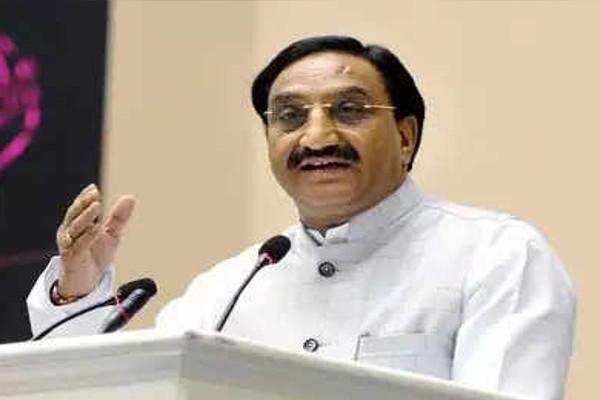New education policy has been approved as a big change in education this year, these are major changes

The new education policy is a historic step in the education sector. The policy is a comprehensive framework for elementary and higher education. It also covers vocational training in rural and urban areas. The new policy was approved on 29 July in a cabinet meeting chaired by Prime Minister Narendra Modi. It envisages achieving 100 percent admission rate from pre-primary to higher secondary by 2030 and 50 percent in higher education. Let’s know its special things:
After the implementation of the country’s new education policy, now students will not have to do MPhil. The course of MPhil has been repealed in the new education policy. After the implementation of the new education policy, now students will do graduation, post graduation and directly PhD after that. A 4-year graduation degree program can then do MA and then PhD directly without M.Phil.
The era of UGC AICTE is over. UGC, AICTE, NCTE will have a regulator in higher education.
Under the new education policy, a common entrance exam will be offered for admission to higher educational institutions. It will not be mandatory for the institute. The National Examination Agency will conduct this examination.
In the new education policy, education will be provided in the mother tongue only till the fifth and up to the eighth as far as possible.
Children’s report card will change. They will be assessed at three levels. One will be a student himself, another is a classmate and third is his teacher. National Assessment Center-Parakh will be created which will periodically test the learning ability of children. About two crore children who have dropped out of education through 100% enrollment will be admitted again.
Higher Education Secretary Amit Khare said that the new policy has introduced multiple entry and exit (multi-level entry and exit) system. In today’s system, if after four years of engineering or six semesters, you cannot study further due to any reason, then there is no solution after one year in multiple entry and exit system, diploma after two years and 3-4 years. Degree will be available year after year. This is a big decision in the interest of the students.
B.Ed. will be 4 years old. The 4-year B.Ed degree will be the minimum qualification to become a teacher from 2030. As per the policy, review and revision of professional standards will take place in 2030 and every 10 years thereafter. Teachers will be recruited through effective and transparent processes. Promotion will be merit based. Performance will be assessed periodically from several sources.
Now the first five years of school will include three years of pre-primary school and foundation stage including class one and class 2. A new curriculum will be prepared for these five years of studies. The next three-year stage will be from class 3 to 5. After this, the middle stage of 3 years will come i.e. the stage from class 6 to 8. Now the child will be given professional and skill education from the sixth. Internship will also be conducted at local level. The fourth stage (classes 9 to 12) will be 4 years old. In this, students will have the freedom to choose the subject. Fashion designing along with science or mathematics will also be freedom to study. Earlier, classes 1 to 10 were general education. From class 11, subjects could be chosen.
In the new school education system of 5 + 3 + 3 + 4, the first five years are for children from 3 to 8 years old, the subsequent three years for 8 to 11 years old children, then the subsequent three years for 11 to 14 years old children. The last 4 years are set for children between 14 and 18 years.
Sixth grade from vocational education
to lead the day went Committee for New Education Policy finalized Dr. Kasturirangan said, now would be the child’s education to professionals and skills of the sixth grade. Internship will also be conducted at local level. Emphasis will be laid on vocational education and skill development. The new education policy will not create unemployment. In school, the child will be given the necessary professional education.
10th and 12th board exams will be easy
.Major changes will be made in the board exams of class X and XII. The importance of board examinations will be minimized. There are several important suggestions. Such as conducting examinations twice a year, dividing them into two parts objective and explanatory categories. The main focus in the board examination will be on the knowledge test so that the tendency of rote students is over. Students are always under pressure regarding board exams and depend on coaching to get more marks. But in future they can get freedom from it. The education policy states that various boards will prepare a practical model of board examinations in the coming times. Such as annual, semester and modular board examinations.
